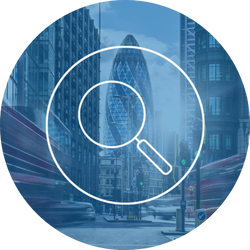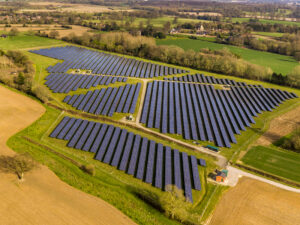Understanding Sub-Synchronous Oscillation (SSO)
What is SSO?
Sub-Synchronous Oscillation (SSO) is a power system phenomenon where oscillations in the electrical network occur at frequencies below the normal grid operating frequency, typically below 50 Hz in the UK. These oscillations arise from complex interactions between grid-connected assets and the wider power system.
SSO is increasingly relevant as more inverter-based resources (IBRs), such as wind, solar, and battery energy storage systems, connect to the grid. Unlike traditional synchronous generators, these assets interact through power electronics, introducing new control dynamics. As grid inertia continues to decline, the risk of SSO grows, particularly in weak grid areas or where multiple IBRs are located close together.
What are the risks?
SSO is more than just a modelling challenge. If not properly identified and managed, SSO can lead to both operational and commercial consequences:
- Equipment Stress and Damage: SSOs can lead to excessive electrical and mechanical stress on generators, transformers, and other grid components, increasing wear or causing premature failure.
- Grid Instability: Poorly damped SSOs can reduce overall system stability, potentially escalating into system-wide disturbances, and increasing the risk of plant trips or blackouts.
- Reduced Power Transfer Capability: The presence of SSOs can limit the amount of power that can be reliably transferred through the grid, hindering the integration of renewable energy.
- Control System Interference: SSOs can disrupt inverter and wind turbine control loops, leading to unpredictable plant behaviour and potential tripping.
- Power Curtailment: In severe cases, system operators may require the plant to reduce or stop exporting power altogether, sometimes for extended periods, as a result of non-compliance and until the monitored SSO issues are resolved.
- Grid Connection Delays: Regulatory authorities may delay or condition connection approvals until SSO risks are fully addressed.
What are the SSO compliance requirements?
In response to recent SSO-related events, National Energy System Operator (NESO) has strengthened compliance expectations. Developers of inverter-based assets are now required to demonstrate that their plant operates with sufficient damping across a variety of grid and plant conditions. This process includes detailed electromagnetic transient (EMT) simulations and frequency domain analysis to identify and mitigate SSO risk before energisation.
Key elements of the compliance process include:
- Time domain step response studies
- Frequency sweep and small-signal injection analysis
- Eigenvalue analysis and damping margin checks
- Identification and mitigation of oscillatory behaviour
These studies are now considered essential for grid compliance, especially for IBR projects connecting to weaker or less stable parts of the transmission system.
How can Fichtner support your project?
At Fichtner, we understand the technical and delivery challenges involved in completing SSO studies to NESO’s standards. To meet these demands, we’ve developed a dedicated in-house automation framework that allows us to run thousands of simulations efficiently and consistently, with full transparency and technical rigour.
We offer end-to-end support for SSO compliance, including:
- EMT model development, review, and validation
- Automated execution of time and frequency domain studies
- Analysis of damping behaviour across multiple scenarios
- Tailored mitigation support when oscillations are detected
- Structured report preparation, aligned with NESO guidance
- Technical engagement during NESO’s review and feedback process
Our multidisciplinary teams draw on deep expertise in power system stability, grid compliance, and control system analysis. We bring together engineers from across our UK and European offices to ensure high-quality delivery and strong client support throughout the process. To discuss your requirements with a member of our team, please reach out to us here: Contact us – Fichtner – Engineering Consultants UK















